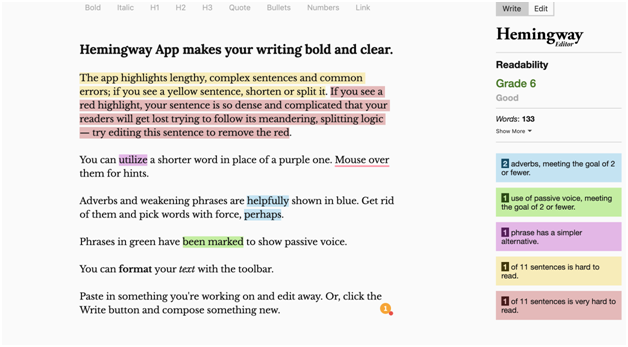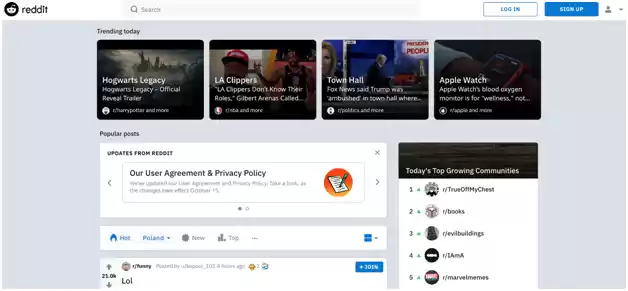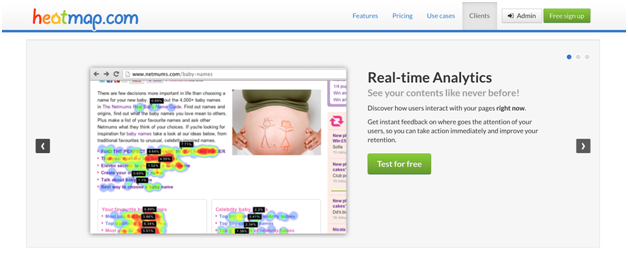
Creating engaging content.
It’s the single biggest challenge that businesses have. Tons of editing, revising, and experimenting go in making blog articles. Unfortunately, even they don’t guarantee high engagement and conversion rates.
Since the universal formula for engaging content doesn’t exist, content folks like you are going above and beyond every day to get comments, likes, and sales.
There are, however, some ways to get ahead faster. One of them is adding special tools to your writing process. Checking your content with them before publishing gives a better chance to generate engagement.
Want to know these tools? Keep reading.
This article has four tools you’ll want to add to your toolbox today.
1. Canva (Get Visual, People Love it!)
Content without visuals is boring. People love them because they help us understand the written content. That’s why we’re looking for them in the content we find on Google.
The best one for content creators is Canva (plus it’s free). Here’s an idea for you on how to get in Google’s top ten.
Let’s say you have a keyword combination you’d like to target. Follow these steps:
- Google them and see the top ten results
- Go through each result. Is there an aspect of that topic that other folks haven’t covered well, or weren’t detailed enough?
There is? Perfect!
Write a piece where you explore that aspect in more detail. The main topic should still be keyword-driven, but make a section with unique infographics about that aspect.
This trick can help you attract attention from those looking for that keyword combination because they would find your article more useful.
Google will recognize that, too. If it finds your article more useful for people, you can get to the top quickly. This way, Canva can help you by letting you create unique visuals.
Related: Top Visual Content Marketing Tools for Better Engagement
2. Hemingway Editor (Write Clearly)

Many content folks, especially non-native English speakers, often make a mistake of writing super complex blogs. The idea is that if you sound smart, the people will recognize your expertise and use your content.
The reality is pretty much different.
Complicated texts don’t convert most of the time because:
- People want simple instructions and tips to solve their problems
- They don’t have time to figure out what you mean.
Hemingway is pretty good at telling you where your content is too difficult. The app finds common shortcomings like:
- Adverbs
- Complex phrases that could be simplified
- Hard-to-read sentences
- Overuse of passive voice.
If you fix these, your content will be much simpler and more engaging.
Hemingway will probably fix most of the content clarity issues, so it’s the next best thing after human pro editing. If you feel like having your content checked by a human, the best websites with writing help aren’t hard to find.
How about a simple experiment with Hemingway?
Write a series of blog articles, check them with Hemingway (aim for difficulty grade of six), and then share them on social media.
For regular social media publishing, try a promotion tool. Zumvu, for example, publishes content both on websites and social media automatically, so it can be a great option to post and compare engagement later.
3. Reddit (Understand Your Readers)

Since recently, Google wants all content to consider the search intent. It’s the goal people have when searching for something.
To understand the intent behind a search, keywords are no longer enough. Google strives to make content writers research people’s needs, and that’s where Reddit comes in.
It’s a huge site with millions of discussions on just about any topic. For you, it means:
- More engaging content topics. You can read what your potential readers are talking about and turn that into a topic.
- Relatable words. What words are Reddit folks using to describe their thoughts on that topic? You can use them (and entire phrases, actually) to make your content more relatable.
You can improve your content by using the ideas from Reddit. The strategy is simple: this site can help you understand your readers’ interests, needs, and even words they’re using.
Pro tip: another way to understand your readers is to read social media conversations. People discuss topics they’re interested in, so it might help you discover what they need.
To do that, you need to follow a lot of people, and it’s a time-consuming project. No worries: there’s a tool for that. Somiibo is a social media bot that connects with people, follows them, and asks for a follow back. This way, you get organic followers while focusing on content creation.
Is Search intent not the only SEO thing you need to improve asap? Check out the guide below for more useful tools.
Read the Guide: 6 Best SEO Writing Tools for More Google Traffic.
4. Heatmap (See the Most Engaging Content Parts)

Would you like to see which sections within your articles get the most views and clicks?
Sounds too good to be true, right? But it’s totally possible!
There are tools called heat maps that mark the areas where visitors click on or highlight content on a web page. By looking at a heat map of a blog article, for example, you can see the most engaging sections.
This way, you can improve your content by:
- Expanding the most popular content sections
- Placing marketing offers, CTA buttons, and other lead magnets in them.
Heatmap is one of the best free tools in this category. Besides traditional heatmaps based on web traffic, the tool also has real-time analytics. It means you can observe the behavior of a visitor on your blog in real-time and follow their actions.
Besides, the tool has a 100 percent free subscription you can use to test your content. So you can get valuable data without spending your marketing money.
Engage More Readers with These Tools
Here you go, four great tools to write more engaging content. Add these to your toolbox, and you’ll become a much better writer. Each of them takes care of a specific aspect of your writing – search intent, popular sections, clarity, etc. – but all of them do their thing to reach one goal: fantastic content that generates a lot of engagement.
Author’s Bio. Daniela McVicker is a passionate digital marketer. Daniela is interested in everything related to SEO and blogging. She collaborates with Topwritersreviewand other websites where she shares her experience and helps marketers make their names in the online world.




